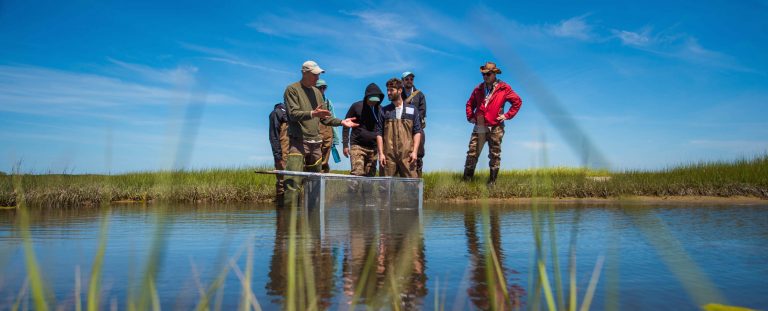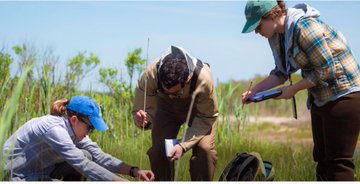
2019 Metcalf Institute Annual Science Immersion Workshop for Journalists.
Deadline: February 18, 2019.
The Metcalf Institute Annual Science Immersion Workshop provides professional journalists with hands-on experience in field and laboratory science with expertise from leading scientists and policymakers who are working to project the impacts of global change, identify adaptation measures, and investigate the most effective ways to communicate these challenges. The workshop will address water resource and climate change topics of global significance while focusing on local and regional case studies in and around Narragansett Bay, among the world’s best studied estuaries. Held at the URI Graduate School of Oceanography, one of the nation’s premier oceanographic research institutions, the Metcalf Workshop provides an intense week of learning in the field, classroom and lecture hall.
ELIGIBILITY
1. The Fellowship is designed for early- to mid-career, full-time journalists from all media who are looking to start or expand their coverage of the environment.
2. Applicants must demonstrate a clear need for scientific training in topics relating to global change in coastal environments, specifically related to climate change and water resources.
3. The fellowship includes room, board, tuition, and travel reimbursement paid after the program in the amount of up to US$500 for U.S.-based journalists and up to US$1,000 for journalists based outside of the U.S.
4. Journalists applying from outside the U.S. must provide written assurance that they have full travel funds and can obtain the appropriate visa.
BENEFITS
Metcalf Fellows will:
- Receive a comprehensive overview of climate science and global change
- Gain a deeper understanding of how scientists conduct research and handle scientific uncertainty
- Develop the skills and confidence to interpret and translate the language of scientific journals for news audiences
- Build confidence in their abilities to discern the credibility of scientific sources
- Board a research vessel to study the impacts of rising water temperatures and ocean acidification on coastal ecosystems
- Explore the study of “emerging contaminants” such as PFAS that affect freshwater and marine ecosystems and public health
- Visit wetlands, shorelines, and coastal communities to better understand adaptive management efforts and solutions in response to sea level rise and coastal storms
- Discover new ways to write about global change to build audience understanding and engagement
- Cultivate new sources by interacting with leading researchers and policy experts in an informal, off-deadline atmosphere
- Network and develop lasting relationships with journalists from around the globe.
OFFICIAL LINK

